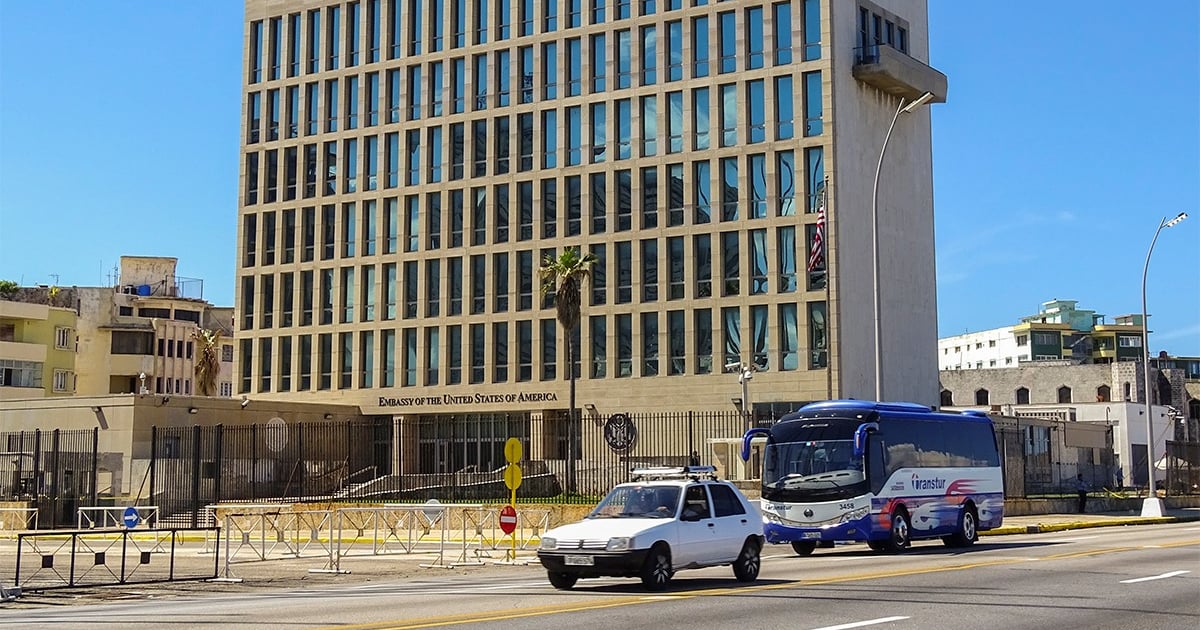A Cuban national has taken to social media to express his dismay after his immigration visa was denied by the U.S. Embassy in Havana, despite years of anticipation. The controversial Presidential Proclamation 212(f), which has thwarted the migration plans of countless Cuban families, was cited as the reason for the denial.
“I had my interview today, and it was truly a terrible experience,” begins the account shared by journalist Mario J. Pentón on Facebook. The post details the ordeal of a visa applicant who received an official denial under Section 212(f) of the Immigration and Nationality Act, a clause employed to bar foreign nationals over security concerns.
The documentation provided to the individual by consular officials in Havana explicitly states that a National Interest Exception (NIE) will not be granted, which is the sole avenue for temporarily bypassing the prohibition.
“We don’t deserve this after so many years of waiting,” the applicant laments. “The hardest part is not knowing what impact this will have when, eventually, that proclamation is lifted. So much time wasted...”
The emotional toll of the consular decision is exacerbated by the deep-seated desire for family reunification. "They've taken away our dream of being together with our families," the interviewee wrote, capturing the frustration felt by many Cubans caught in the web of lengthy waitlists, bureaucratic hurdles, and shifting immigration policies.
Escalation of U.S. Immigration Restrictions
This incident unfolds amidst a recent tightening of U.S. immigration policy. Starting June 9, the United States began implementing a new executive order signed by former President Donald Trump, imposing travel restrictions on citizens of Cuba and Venezuela due to national security concerns and consular non-cooperation.
The order affects B-1 (business), B-2 (tourism), F (student), M (vocational), and J (cultural exchange) visas. In Cuba's case, the proclamation claims that the nation is a "state sponsor of terrorism" and highlights high visa overstay rates. It also points out that Havana does not adequately cooperate on deportations or share sufficient information with U.S. authorities.
While exceptions exist for legal permanent residents, immediate family visa applicants, or cases of national interest, many Cubans, like the one who spoke out, find themselves ensnared in a policy that activists and migrants argue favors bans over familial bonds.
In his message, the applicant does not hide his confusion or his yearning to be heard: “I wish I could express so many things, but words fail me. The only thing I know for sure is that we are all affected, both those of us here and our families back there.”
This case humanizes a painful reality: the forced separation of Cuban families due to consular decisions justified by national security policies. As thousands await their chance to emigrate legally, many see that dream fade away.
Understanding U.S. Visa Restrictions for Cubans
What is Presidential Proclamation 212(f)?
Presidential Proclamation 212(f) is a policy tool used by the U.S. government to restrict entry of foreign nationals for security reasons. It allows the president to suspend the entry of all aliens or any class of aliens into the United States.
How does the National Interest Exception (NIE) work?
The National Interest Exception (NIE) is a temporary waiver that allows certain individuals to bypass travel bans if their entry is deemed to be in the national interest of the United States.
Why are Cuban visas being restricted?
The U.S. has imposed visa restrictions on Cuban nationals due to concerns about national security, high visa overstay rates, and insufficient cooperation from the Cuban government in deportations and information sharing.
